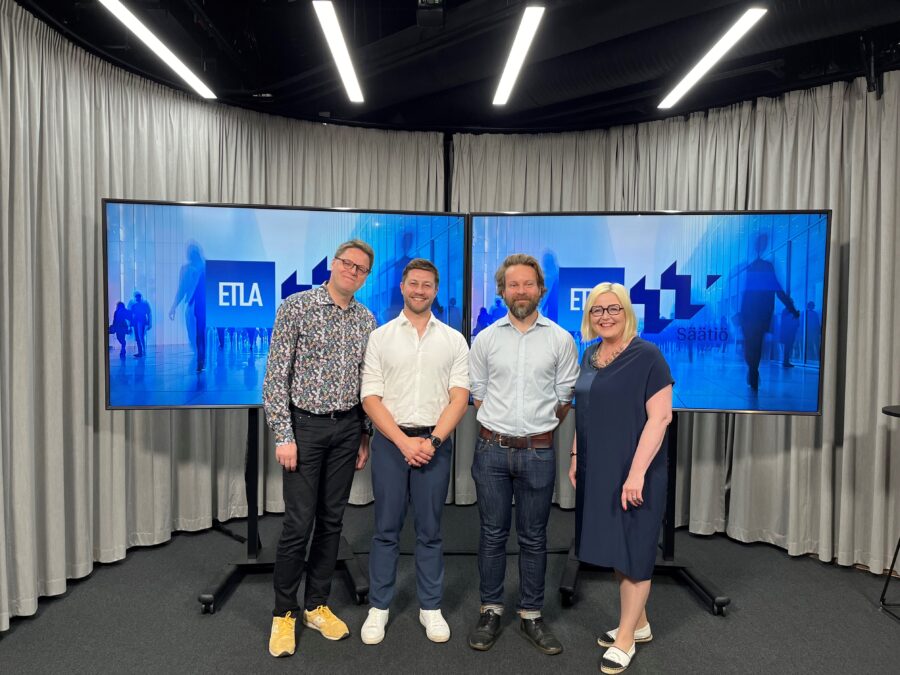Generative AI tools such as ChatGPT are designed to produce human-like content, and their productivity-enhancing capabilities are widely recognised. However, to fully realise their potential, we need to understand how people perceive and use them. At the Etla webinar on 6 June, Oxford University researcher Fabian Braesemann discussed the different motivational dimensions of using AI.
On Thursday 6 June, Etla published fresh results on the impact of the AI application ChatGPT on the demand for work in the online platform job market. The results, calculated by Etla’s researcher, PhD Otto Kässi show that human labour will not disappear, but the distribution of jobs will be affected by AI.
In the short term, ChatGPT did not reduce the overall demand for labour, but only changed the structure of labour demand. The demand for AI-enabled and AI-insensitive jobs in the network platform job market increased significantly after the release of ChatGPT. At the same time, however, the number of vacancies that AI could theoretically fill without human assistance decreased.
The research results were discussed in an in-depth webinar at the Sanomatalo in Helsinki. The webinar was addressed by Dr Fabian Braesemann, lecturer and researcher at the University of Oxford, who presented six key motivational dimensions of using AI.
Fabian Braesemann is a social data scientist in AI & Work at the Oxford Internet Institute, University of Oxford. He is currently leading a research project that uses data science methods to study the science of success.
The aim is to uncover the drivers of success in a variety of areas, such as the careers of successful entrepreneurs, the growth of start-ups, and the creation of innovation ecosystems.
Braesemann’s research has been published in leading academic journals, and he has also presented his ideas in international news media such as Die Zeit, Washington Post, Business Insider and The Times.
He is also CEO of the technology company he founded, DWG Datenwissenschaftliche Gesellschaft Berlin. DWG collects and analyses data from various online sources, and develops data science technologies and methods for evidence-based decision making.
At the end of the webinar, Etla’s research advisor, Ph.D. Petri Rouvinen discussed with researchers the productivity implications and challenges of AI in future working life. The event was hosted by Tytti Sulander, Etla’s Head of Communication, and technically organised by FLIK.
You can watch a recording of the Etla webinar by clicking on the image above or by visiting our YouTube site EtlaTalks. The webinar is in English.
The presentation slides are attached to this article.

In the photo (from left) Petri Rouvinen, Fabian Braesemann, Otto Kässi and Tytti Sulander.